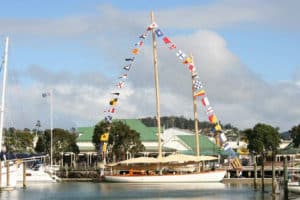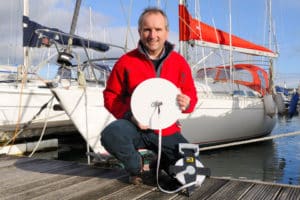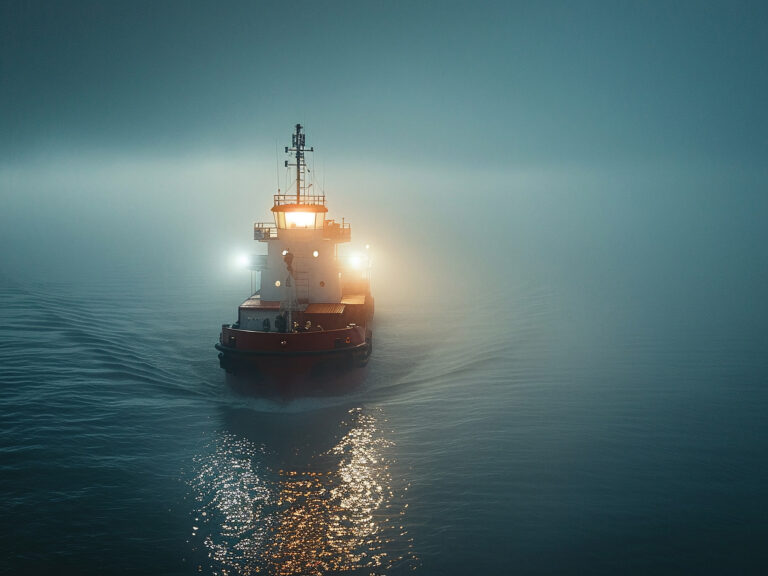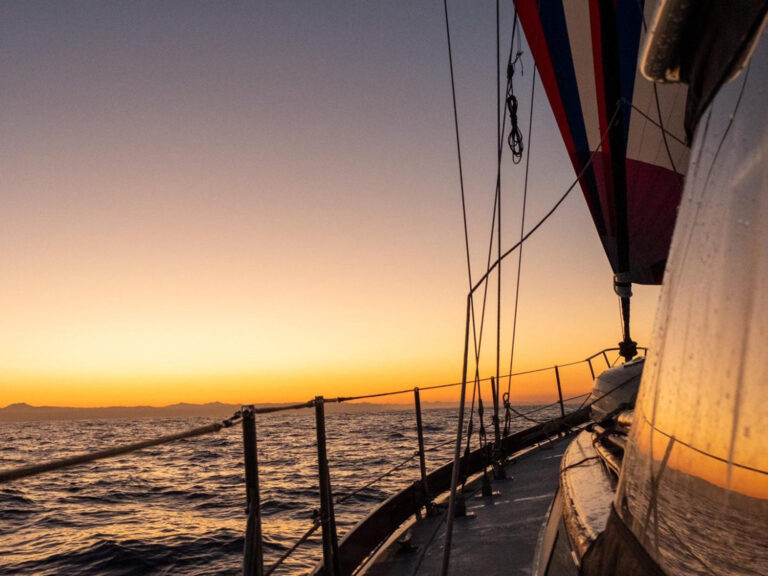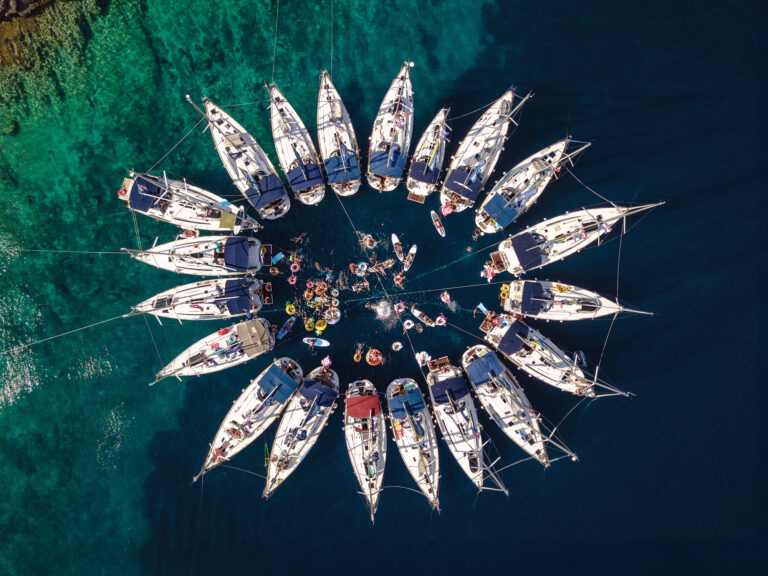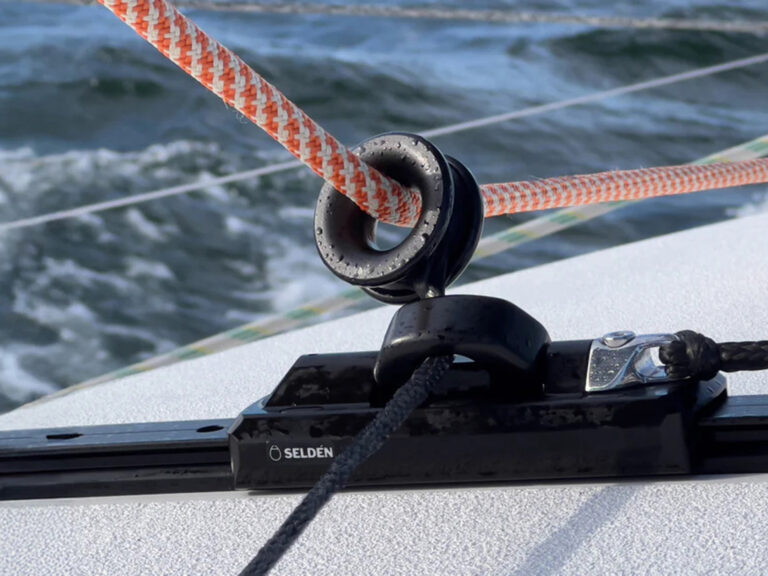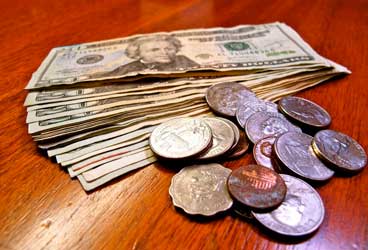
Windtraveler- money
Despite how I feel about the issue, the number one topic of conversation between wannabe (or soon-to-be) cruisers and existing cruisers is MONEY. M-O-N-E-Y. Particularly “How much does it cost to go cruising?” I wrote about it before, but the questions keep coming. It’s a tough issue to broach for a number of reasons; the first of which is the fact that we are by no means experts on the subject (nor do we track our spending with that much organization to offer any real advice or evidence) and the last of which is my personal belief that this is really nobody’s business but our own. When I was renting apartments for a few hundred dollars a month and my friends were all buying condos, I didn’t ask them how they afforded their new places or how they manage their monthly mortgage payments, or what they spend on their grocery bills or (gasp!) how much their annual salary was. For some reason, this “etiquette” of land life goes completely out the window if you are a cruiser and in the blogosphere. So, here I am.
I understand the urge to ask these questions, trust me, I do. And I don’t blame you for trying to figure it all out. BUT… I don’t have the answer you are looking for. I have no idea how much it will cost you to go cruising! But, because I love you guys, I will – however – offer some insight. Here are
10 Questions to Ponder that will help you to determine where you will fall in the CRUISING BUDGET BRACKET:
1) Is your boat in good shape? If not – you can add at least another couple hundred to the monthly cruising budget. Scott and I outfitted our boat while both of us were gainfully employed and that has made our costs (this first year at least) significantly less because we have had to do very few major (read: $$$) repairs. If your boat is less than ship-shape, plan on lots of repairs. Trust us, we’ve seen it.
2) Are you hands-on? Scott (thank god) is – which means we rarely, if ever, have to pay anyone a service fee to help us fix something. Marrying an engineer has it’s perks, this is one of them. If you or your partner are not hands-on, then factor in a few bucks to pay someone to fix the things that WILL break. Furthermore, if you do regular preventative maintenance on your boat (like, checking sails and lines for chafe, scrubbing the bottom regularly, polishing stainless and doing routine engine maintenance) you will save yourself hundreds in the “catastrophe fund”.
3) Are you a social butterfly? I love to socialize, but I like my downtime just as much. If you are someone who constantly wants/needs to be around others you will (inevitably) be drawn to the harbors and anchorages that are more popular, which almost always mean more expensive. Going out for dinners and drinks with other cruisers can also be very expensive, so either make a pact to do more pot-lucks or factor in another couple hundred per month for your social budget. Socializing is fun, but sometimes it can cost you!
4) Do you like to anchor out? Scott and I prefer life at anchor. 90% of the time this is FREE. Marinas are great from time to time, but they do not come cheap ($1.00/ft/night is about the cheapest you’ll find out here – and typically it’s more like $2.00/ft/night). If you prefer life at a marina (or must be at a marina regularly due to your power demands), make sure you account for that.
5) Do you like to cook? I don’t. I’m working on this, because we can’t afford to eat out every night. So I’m perfecting on my repertoire of recipes (curry, grilled cheese, stir fry and pasta) and, luckily for us we both can subsist quite happily on cheese sandwiches and rice and beans so I’m okay… for now. If you prefer to eat out regularly, however, factor that in! Despite what you might think, dining out island style is not always cheap!
6) Do you like to get places fast? If so, you’ll probably turn on your engine more than you think. And diesel does not come cheap. We are lucky in that we have a new, very efficient engine in our boat and we’ve probably put in the equivalent of less than 10 full tanks since we left. If your engine is a gas-guzzler or you prefer to motor to make better time (keep in mind, motorsailing will save you diesel), then you might want to practice your zen meditations for when the wind dies or add a few more bucks to that cruising kitty.
**
7) Do you like your “creature comforts”?** And by that I mean comforts such as; air conditioning, refrigeration, water maker, television, constant Internet connection, ice… etc. If you said yes to any or all of these things understand that they WILL cost you more money not only in installation but in practice as well. All of those systems (particularly AC and refrigeration) are energy guzzlers (and therefore costly) and others are very expensive to have (some water makers, satellite Internet on board). If you want or have all of these on your boat, add some more to your cruising budget because you’ll be paying for that comfort! (For the record, we have no AC, no refrigeration, no television, and we have a wifi booster with which we usually get free Internet).
8) What size boat do you have? There is no question that the size of your boat is directly proportionate to what you will spend on it. The cost of a slip for a 35 foot boat, for example, is much cheaper than that of a 45 foot boat; as are the halyards, the ground tackle, the hardware, the maintenance and (especially) the repairs. Most boat yards and marinas charge “by the foot” so slips and haul-outs cost more, you’ll spend more on bottom paint, you’ll pay more for stowage and cleaning and just about everything else that has to do with your boat. If you really want to cruise on the cheap, consider a smaller boat.
9) Do you want boat and/or health insurance? Scott and I don’t have this, but many cruisers do. We weighed our options and decided the $3,000 or so just wasn’t in our budget. Simple as that. So we don’t have it. Risky? Perhaps. But there are MANY boats like us who would rather spend the money on great gear and great ground tackle. If you are going to have either or both of these, factor in a another few hundred per month. Oh, and please don’t run into us. Thanks.
10) How energy efficient is your boat? Do you have solar panels and/or a wind generator? As you add any of the items in #7, you will need to increase your ability to replenish the energy as well as increase your battery bank. Can you keep up with your energy needs? Despite the fact that we have a relatively simple boat energy-wise, we still need to run our engine from time to time, and each time we run our engine – that’s pennies out the window! We have met some cruisers who’s energy demands are so high that they require to be at a marina more than they anchor out. This is fine if this is what you like and can afford it, but most people can not.
So there you have it! 10 questions to help you determine where you might fall in the spectrum. If you are on the high end (and I’m just guesstimating here), you can be spending anywhere from $3-$5,000 per month. On the low end anywhere from $1,000-$2,000 per month. Again, this is just a guess. I repeat: we are NOT experts.
I read a great article in an old sailing magazine by Lin and Larry Pardey on this exact subject and they have a great “formula” to calculate, roughly, what you might spend on an extended cruise (because they are the experts!). The basic principle is that you won’t be all that different on a boat than you are on land. If you like to drink wine, you will still buy wine. If you love to dine out, you will still dine out. They say that “…if you take your everyday, onshore living expenses and subtract your automobile costs, two-thirds of your clothing costs, your rent or mortgage payments and your mooring costs, then add one third to your food costs you will come up with a close estimate of your eventual cruising costs over an extended period.” (I would edit this to say “3/4 of your automobile costs” because you will buy diesel from time to time).
Scott and I are young and when we were leaving, we just left. We knew we’d run out of money – and we just figured we’d stop and work where we could. Our mentality was that we’d “figure it out”. We did not lose sleep over money because to us, leaving was the most important part of the process. Once we got out here, the cards would fall as they would and we’d cross each bridge as we came to it. Cavalier? Perhaps. But we knew we had enough cash to be dangerous, and that was really all that mattered. Perhaps this is a function of our age? Who knows…but I do know we did not fret over money much, if at all. The “plan” was always to stop and work when we needed to and then continue on when we could.
Don’t get stuck with “analysis paralysis” by obsessively crunching numbers in your head and making spreadsheet after spreadsheet while trying to “figure it all out”. Just remember this nugget of advice we once got: “Cruising will cost whatever you have, no more – no less.” It might just be as simple as that!
Love,
Brittany & Scott
When two people, with the same life long dream of sailing around the world find each other, there’s only one thing to do… make it happen!
Which is precisely what we, Scott and Brittany, are doing aboard our boat, Rasmus_, a Hallberg-Rassy 35 which departed from Chicago September 2010! Follow along at _

